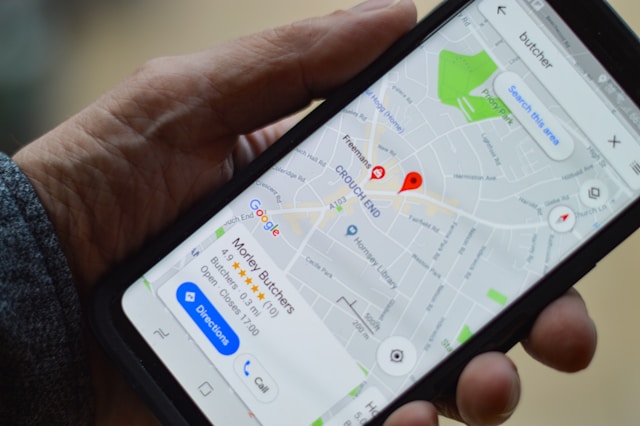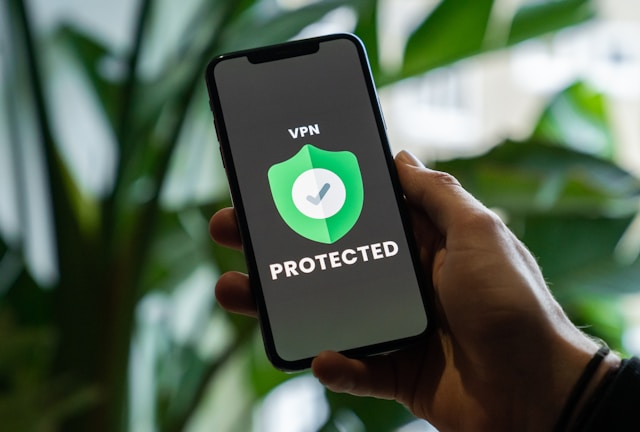The strength of your local SEO strategy will dictate how well your business does in each geographic area. That’s especially true in highly competitive markets and niches. That’s because some competitors can spend a lot of money to win the top search rankings.
In this article, we’ll cover the best local SEO strategies and common challenges you need to overcome. Hence, you can get an edge over competitors that are not taking advantage of these strategies.
Keep reading to learn more about what’s included in a local SEO checklist to get the best results.

Table of Contents
What Is Local SEO Strategy?
Local SEO strategies optimize a business’s online presence to capture customers from nearby searches. This leverages the power of local visibility to the maximum. Also, the approach combines optimizing your Google Business Profile and building local citations. Then there’s earning links from nearby businesses, and infusing location-specific keywords into your site content.
With local SEO, your business can appear in location-based searches and Google Maps listings. This might be highly beneficial since it can drive more customers your way.
Key tactics include gathering customer reviews, ensuring accurate contact details, and crafting a mobile-friendly website. We’ll go into each of these in more detail further on in the article.
You can also outsource local SEO work to an agency. They can handle some of the tasks outlined above, thereby freeing up your time to work on other things.

Local SEO Content Strategy: 5 Best Practices
Are you interested in launching a content strategy for your local SEO efforts? This is a crucial part of the process that can result in more potential customers. However, getting the details right and picking an appropriate strategy is key. We’ll show you where to put your focus for the best results.
1. Incorporate Local Keywords
Add local keywords naturally into your content to help Google understand your geographic focus. Therefore, you’ll need to use keywords that include city names, neighborhoods, or local landmarks. This is appropriate on key pages like your homepage, service pages, and blog posts.
Local keywords signal relevance to nearby searchers, thereby helping your business appear in location-based queries. Consider using geo pages for each location you serve to capture specific audiences.
Get it right, and local keyword usage enhances SEO while maintaining readability. Overall, it will make your business easier to discover by local customers.
2. Build Localized Content
Creating content relevant to your local target audience establishes your business as a community-focused brand. Consider writing blog posts about local events, partnerships, or news that matters to your area. This is a form of geotargeting SEO.
Additionally, cover topics that highlight your expertise while incorporating local insights. For instance, a bakery could write about seasonal flavors that are popular in your city. Don’t forget to add the right local keywords for each piece of content you produce. It helps search engines like Google display your content in organic search for target keywords.

3. Use Local Link Building
Earning local SEO backlinks from reputable local websites boosts your credibility and search rankings. You can do this by engaging with local businesses, news outlets, and community organizations for link-building opportunities.
Also, collaborate on events or sponsor local causes. You can then ask for a mention or link back to your site. This is an organic way to generate backlinks that contribute to an organic backlink profile and a boost in the search engines.
Additionally, submit your business to local directories and chambers of commerce to strengthen your presence. Each local backlink reinforces your authority in the area, thereby making it easier for customers to find you online.

4.Create Location-Specific Pages
If your business serves multiple areas, then create individual location pages to target specific regions. These pages should include unique content, such as the services you offer in that location. Also, you can include customer testimonials from the area and relevant local keywords.
Make sure to avoid duplicating content by modifying each page to address the needs of the local audience. This will help you tank each location-specific page individually while providing relevant information.
This SEO strategy ensures that each area you serve feels acknowledged. The knock-on result is that search engines and customers alike can better understand your website.
5. Implement Schema Markup for Local SEO
Schema markup helps search engines better understand and display information about your business. Use local schema markup to enhance your business’s online profile with data like your address, hours, phone number, and customer ratings. Ideally, you’ll have a lot of positive reviews from running a good quality local business.
This added information helps Google display rich snippets in search results, such as star ratings or operating hours. Additionally, schema markup boosts visibility by making your listing more attractive and informative to users.
Furthermore, implementing it on your website is a straightforward way to increase click-through rates and strengthen your local SEO. This helps search engines connect your business to local queries.

Local SEO Strategy: Potential Challenges
There are several potential strategies that you might face when implementing your SEO strategy for the local area. Knowing about these ahead of time will help you overcome potential problems and get the most out of your SEO strategy. Here are the top ones to consider:
- Managing consistent NAP information: Maintaining consistent name, address, and phone (NAP) information across multiple platforms is challenging with multiple locations. Therefore, any inconsistency can confuse search engines and reduce your local search rankings. Hence, regular audits are necessary to ensure accuracy across the internet. Even minor differences can impact local SEO effectiveness, so regular optimizing is good practice.
- Avoiding duplicate content issues: Creating unique content for each location page is essential, but it can be challenging and time-consuming. That’s because duplicate or overly similar content can confuse search engines. This potentially results in ranking penalties. To avoid this, each page must offer distinct and location-specific information.
- Coordinating local reviews across locations: Encouraging and managing customer reviews across locations can be difficult. This is because each location may receive different levels of feedback. Without consistent review efforts, certain locations may lag in online credibility. Therefore, track and respond to reviews in real time for each location.
- Considering budget constraints: Allocating a sufficient budget for multi-location SEO efforts can be challenging. That’s because each location requires tailored strategies, content, and local ad campaigns. Therefore, make sure adequate resources are available for each area without diluting effectiveness. Budget limitations can impact the depth of SEO initiatives per location, potentially affecting overall visibility and reach.
- Building local backlinks for each location: Gaining quality local backlinks for each business location is challenging. It requires separate outreach to local websites, news outlets, or community organizations. Also, each area needs unique links to establish local authority.

Local SEO Strategy for Multiple Locations
Now, let’s turn our attention toward the local SEO strategy you should be using when multiple locations are at play. These will help you better manage your SEO strategy and ensure that you optimize each physical location.
Optimize Google Business Profiles for Each Location
Create and manage a Google Business Profile (GBP) for each location. This ensures each profile’s information is accurate and up-to-date. Additionally, use unique descriptions that include location-based keywords and regularly add photos. You’ll also want to submit posts and events specific to each area.
Customer interactions on each profile, like responding to reviews or answering questions, signal to Google that each location is active and relevant. Also, individual GBPs improve local search visibility in Google Maps and search results. Overall, this will take more work, but your results will be far better for each location.
Build Citations for Each Location
Establish citations in trusted online directories, thereby ensuring each location has consistent NAP details. This includes platforms like Yelp, local business directories, and industry-specific sites.
Local citations reinforce your business’s authority and improve visibility in location-based searches. Don’t forget to check them regularly for accuracy.
Additionally, submit each location to region-specific directories, such as local chambers of commerce or other credible sites. There are many potential directories you can submit your business to when searching for them.
Track and Analyze Local Performance Metrics
Use tools like Google Analytics and Google Search Console to monitor key metrics for each location. Top key performance indicators include website traffic, keyword rankings, and conversions. Analyzing metrics helps you understand what works in each area and identify improvement opportunities.
You’ll also want to adjust your strategy based on data insights to enhance each location’s performance. For example, refining keywords or updating content. Additionally, tracking each location individually allows you to make targeted adjustments. This ensures each area maintains strong visibility in local search results.
Customize Social Media Engagement for Each Location
Utilize social media to connect with local audiences by sharing content tailored to each location. This might be community events, promotions, or local partnerships. If possible, create separate social media profiles for each location. However, if you don’t, then geotag posts and use location-specific hashtags to target users in different areas.
Social media activity indirectly supports local SEO by driving traffic to your location pages and increasing user interaction. Showing that each location is active and engaged in the community bolsters brand trust and helps improve local search relevance.
Create Location-Specific FAQs
An FAQ section for each location helps answer common questions specific to that area. This can include topics like operating hours, service coverage, or location-specific services. Try to tailor FAQs to help search engines understand the unique aspects of each location.
Additionally, use local keywords naturally in FAQ answers to improve SEO for each area. FAQs also enhance the chances of appearing in featured snippets. This can increase visibility in search results.
Hire a Local SEO Agency for Multi-Location Management
Partnering with a local SEO agency can streamline the complexities of managing SEO for multiple locations. You’ll need to compare local SEO packages to find the right fit.
An experienced agency understands the unique challenges of local SEO and offers specialized knowledge. This includes optimizing Google Business Profiles, building local citations, and creating location-specific content.
Furthermore, agencies handle time-intensive tasks like link-building, content creation, and tracking metrics. This frees up your team to focus on core business activities. They also provide insights into performance for each location.
That’s because they can recommend tailored strategies and ensure consistency across listings. Try working with a local SEO agency to learn the best practices and increase your chances of success in dominating the local area.

Should You Use a Local SEO Strategy?
Yes, taking advantage of an SEO strategy in your local area can be a game-changer to secure more sales. In fact, this should be part of a winning strategy, and the tips in this article will help you get off in the right direction.
Make sure that your local SEO strategy includes Google My Business optimization, local backlinks, and geo pages. Each of these contributes to a powerful approach that will see you climb the ranks in the search results.
You can also market to local customers with the help of geoPlugin. It’s a tool that enables you to transform IP addresses into geolocation data. The tool provides an API that you can use in a variety of use cases.
So what are you waiting for? Give geoPlugin a try today to upgrade your business.

Frequently Asked Questions
Let’s take a look at a few of the more interesting FAQs about local SEO strategies. These will help shed some light on a few basic aspects that weren’t answered above.
What is the most effective strategy for local SEO?
The most effective strategy for SEO is a combination of different methods. This includes Google My Business optimization, geo pages, local backlinks, and more. That’s because each of these greatly contribute to the overall local SEO effort. Missing any one of these will be a big disadvantage compared to the competition.
Why are customer reviews crucial for local SEO?
Customer reviews influence local SEO rankings and help build trust with potential clients. That’s because Positive reviews improve your visibility in local search results and serve as social proof. This encourages more customers to choose your business. Also, Google prioritizes businesses with high-quality and consistent reviews.
Responding to reviews, whether positive or negative, shows engagement and commitment to customer service. This further signals to search engines that your business is reputable and relevant.
How do location-specific keywords boost local SEO?
Location-specific keywords help boost local SEO by connecting your business to nearby searches. You’ll typically need to incorporate geographic terms like city or neighborhood names. Make sure to use these keywords on pages like your homepage, service pages, and blog posts.
Overall, this practice helps attract local customers who are actively seeking services in your area. It’s a good idea to invest in a keyword research tool to find the right target keywords in your local area.
When should you consider hiring a local SEO agency?
Hiring a local SEO agency is beneficial if managing a multi-location SEO strategy is becoming overwhelming. Also, you need to have the available resources to invest in such a service. Hence, take a look at your marketing budget to ensure you have the funds.
Agencies bring expertise in optimizing Google Business Profiles, building local citations, and managing reviews. Also, they track and analyze results, thereby providing tailored strategies for each location.
How can you track the success of a local SEO strategy?
Tracking a local SEO strategy involves monitoring metrics like local keyword rankings, Google Business Profile insights, and website traffic. You’ll need to do this for each location.
Furthermore, tools like Google Analytics and Google Search Console provide the right analytics data. They can help analyze engagement, conversions, and search visibility.











